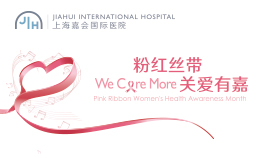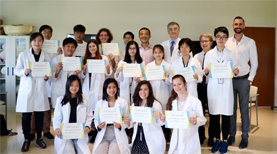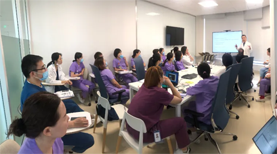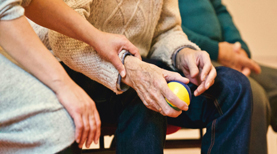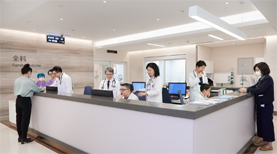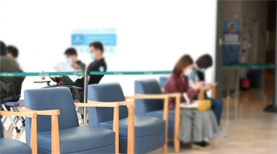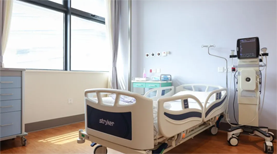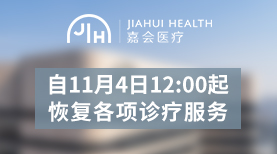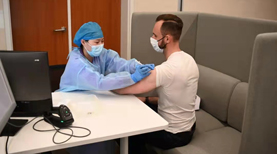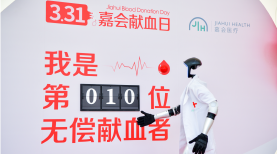Nobody likes to think about something bad happening to themselves or a loved one, but emergencies do happen. Instead of ignoring the possibility, seek comfort by being prepared for an emergency.
Below are a few simple steps you can take to make sure that you and your family are ready just in case an emergency does happen.
Prepare for family medical emergencies ahead of time by collecting all the relevant information and documents. Keep all required paperwork and useful information in a convenient folder and make sure everyone has a digital copy readily available (for example in your mobile phones).
You can fill in the card with the following information (one per family member) and keep it with you.
Information Card should contain:
•Name
•Date of Birth
•ID/Passport Number
•Medical Conditions
•Previous Surgeries
•Allergies
•Medications
•Emergency Contact (name/mobile): Spouse, mother, father
We suggest you keep a ‘take me to’ card with you with the information of your preferred medical provider.
Make sure you also have the following documents ready in case of medical emergency:
•Insurance Card
•Passport or copy
•Vaccination Records
•Medical Records
It is important to have several means of payment available in order to avoid delay in care. Most hospitals in Shanghai accept payment methods such as Chinese UnionPay cards, Wechat, Alipay, and cash. While most private hospitals and clinics also usually accept international credit cards, local hospitals may not.
If you have an insurance plan, it is important to check where it is accepted. You should read your policy carefully and make sure you understand it well. In order to avoid surprises, you should familiarize with technical terms such as deductible, copay, out of pocket, pay and claim, direct billing etc. Be aware that some policies exclude or apply high deductibles to “high-cost facilities” in China, so please check your coverage.
Commercial Insurance: Some hospitals have direct-billing agreements with insurance provider, but most government hospitals do not. In that case you will have to pay first, then claim from the insurance. It is important to know payment and insurance options accepted at the hospitals and clinics near your home, work, or school. Jiahui International Hospital works with various insurance companies in order to provide the smoothest patient experience possible (for more details about our insurance partners, please see appendix 3).
Social Medical Insurance: Most government hospitals only accept Chinese social medical insurance (YiBao). Jiahui International Hospital also accepts this social medical insurance.
Self-Pay: If you need to pay out of pocket, a deposit is commonly requested during registration. It is recommended to prepare 10,000-20,000 RMB in cash or e- payment.
Know the hospitals near your home, work and school
Visit the local hospitals and anticipate by pre-registering. We recommend that you identify a 24/7 Emergency Department for adults and for children close to the places you and your loved ones spend most of your time. This usually includes your home, workplaces, kid’s school etc. Be aware that most local hospitals only see adults or children. While some accept both, it is important to check beforehand to avoid delay in care should an emergency occur.
Jiahui International Hospital 24/7’s Emergency Department can treat both pediatric and adult illnesses, as well as obstetrical emergencies, and most injuries for all age groups.
1)Know important emergency numbers in Shanghai
•Ambulance: 120
•Fire Services: 119
•Police: 110
•Jiahui International Hospital: 400-868-3000
2)Learn some Chinese vocabulary related to medical emergencies:
|
Mandarin |
English |
|
紧急 jǐnjí |
Emergency |
|
急诊 jízhěn |
Emergency room |
|
医院 yīyuàn |
Hospital |
|
医生 yīshēng |
Doctor |
|
救护车 jiùhùchē |
Ambulance |
|
快去叫救护车! kuài qù jiào jiùhùchē |
Quick, call an ambulance! |
|
快去叫出租车 kuài qù jiào chūzūchē |
Quick, call a taxi! |
|
救命!jiùmìng |
Help! |
|
离这里最近的医院在哪儿? Lí zhèlǐ zuìjìn de yīyuàn zài nǎr? |
Where is the closest hospital? |
3) Attend a “CPR and first aid training” course
Knowing basic CPR and first aid allows you to quickly provide life-saving interventions until the ambulance arrives, or before you can reach the hospital. If you have a domestic helper, make sure they are also trained.
Several institutions in Shanghai offer CPR and first aid training. Some, like Jiahui hospital, have licensed American Heart Association (AHA) training centers delivering official AHA certificates that can be used as credentials for professional or leisure requirements (i.e. sports licenses).
Jiahui’s AHA Training Center provides “The Heartsaver® First Aid CPR AED course” for lay responders who wish to combine first aid with CPR training to give them a broad base of lifesaving skills. This AHA course covers First Aid Basics, common medical and environment emergencies including Adult CPR, AED, and choking management.






